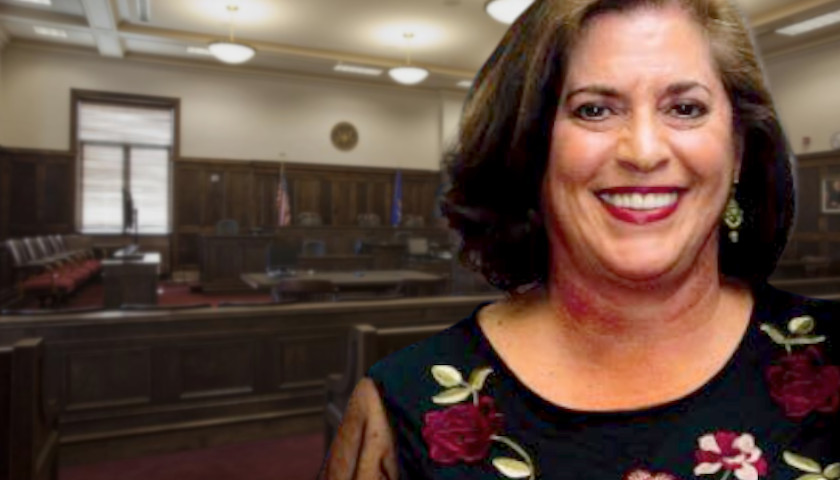As political party attorneys and the state of Pennsylvania argued over “curing” election ballots on Thursday, the Democratic judge hearing the case suggested that differing county rules could undermine confidence in election integrity.
Judge Ellen Ceisler, one of two Democrats on the seven-member Commonwealth Court, conducted the hearing in which Republican Party lawyers pressed their case against Pennsylvania Acting Secretary of State Leigh Chapman (D). Per litigation filed three weeks ago, the plaintiffs contended that the court should not permit the secretary to let counties notify absentee or mail-in voters that their ballots contain mistakes that can supposedly be corrected or “cured.”
Some voters err either by failing to sign or improperly filling out declarations on their ballot envelopes. Others fail to insert their ballot into a secrecy envelope before placing it in the aforementioned envelope. Some Pennsylvania election boards contact these voters and allow them to correct and resubmit their ballots.
Kathleen Gallagher, counsel for the Republican National Committee, told Ceisler that Bucks, Montgomery, Philadelphia, Northampton, and Lehigh Counties — all in or near the state’s left-leaning southeast — run afoul of state law when they facilitate ballot curing. She argued that the commonwealth’s election code clearly lists duties that county election boards must perform and contains no mandate to notify voters that they may correct errors concerning their declarations or secrecy envelopes.
Furthermore, Gallagher noted, other counties have not implemented curing procedures. In that light, she said, jurisdictions acting on them muddle the proper understanding of the law, making its statewide application uneven. She insisted that they resultantly violate the election code as well as the Elections Clause of the U.S. Constitution which vests state legislatures with the power to determine the “times, places and manner” of elections. A 2020 decision by the Democrat-controlled Pennsylvania Supreme Court, she observed, affirmed that the state general assembly is “best suited” to outline any ballot-curing rules.
“Only the legislature can adopt a notice and cure procedure,” she said. “That’s the law of the commonwealth. That does not give discretion to the boards to do it … . It has to be the same rules for everybody.”
The suggestion that counties’ disparate approaches to the matter create uncertainty for election administrators and the general public seemed to resonate with Ceisler, who nevertheless emphasized her desire to have all legitimate votes counted.
“All of this makes me anxious, just so you know,” she told litigants. “I mean if every county’s doing their own thing, in terms of reaching out, I think this is the kind of ‘mischief,’ or the questions or concerns that [Democratic Supreme Court] Justice [Max] Baer had. I don’t know; I haven’t made a decision on this, folks. I just need for you to know that. I mean there’s nothing that I want less than the people to not have their votes counted [and] there’s nothing that I want less than to have public distrust in the system.”
Uzoma Nkwonta, an attorney for the Democratic Party which has joined the state in defending curing, opined that failing to permit curing would result in many voters’ disenfranchisement.
“What can erode public trust in elections is voters being disenfranchised, voters casting ballots that are ultimately not counted,” he said. “And what can further erode that trust is when that decision not to count a ballot, to reject a ballot, comes midway through the voting process…. That does far more harm, we would posit to the court, than a situation where different counties adopt different procedures.”
Pennsylvania’s GOP-run legislature passed a bill last year to enhance election security as well as voter access and that legislation featured uniform rules for ballot curing. Democratic Governor Tom Wolf nonetheless vetoed that bill, considering its voter identification requirements too restrictive.
Ceisler said she hopes to issue her opinion on the case next week. Whoever loses at that stage is expected to appeal to the state supreme court.
– – –
Bradley Vasoli is managing editor of The Pennsylvania Daily Star. Follow Brad on Twitter at @BVasoli. Email tips to [email protected].
Photo “Judge Ellen Ceisler” by Brian J. McGinnis.





